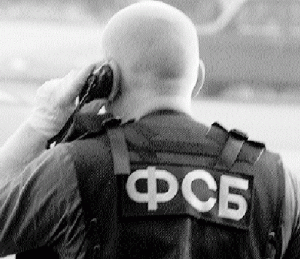
OFFICIALS WARN OF A POSSIBLE RUSSIA-GEORGIA WAR IN THE FUTURE
Publication: Eurasia Daily Monitor Volume: 5 Issue: 203
By:

The withdrawal of Russian soldiers two weeks ago from the so-called “buffer security zones” around Georgia’s breakaway territories of Abkhazia and South Ossetia did not stabilize the situation. The buffer zone around South Ossetia, occupied by Russian troops during the war with Georgia last August, became a lawless area looted by the Ossetian militia. In accordance with the EU-brokered ceasefire, the Russians eventually withdrew as EU observers moved in. French Foreign Minister Bernard Kouchner praised Russia for fulfilling its obligation to withdraw from the buffer zones before October 10 (AFP, October 10).
Today, the Russian forces are establishing military bases on territory within the administrative borders of Abkhazia and South Ossetia, which Moscow has recognized as independent states but the international community considers part of Georgia. Russian as well as separatist Abkhaz and Ossetian solders have established positions on the administrative borders. It is expected that in a couple of days the Russian parliament will ratify treaties of “friendship, cooperation, and mutual assistance” with Abkhazia and South Ossetia. The two identical treaties will allow military cooperation and “joint guarding of borders.” It has been announced that Russian border guards of the FSB security service, the KGB’s successor, will be guarding these borders in the future (Kommersant, October 21).
As the Russian troops withdrew from the buffer zones, armed Georgian police moved in to establish law and order and allow the return of Georgian refugees who fled the fighting and occupation. As a result, today the Georgian police on the one side and the rebels and Russians on the other face off at firing distance along new separation lines in Ossetia and Abkhazia. Several hundred unarmed EU observers are deployed but only on the Georgian side. EU officials say that the observers have established good working relations with the Georgian police and hope they will be allowed in the future to extend operations into Ossetian and Abkhaz-controlled territory (Interfax, October 20).
The rebel leader of South Ossetia Eduard Kokoity has accused the Georgians of deploying Special Forces on the border, of shooting at Ossetian positions, and of kidnapping Ossetians. Kokoity has ordered his forces to shoot back at the Georgians, who “have continued their policy of aggression and provocation in the border area.” He has accused the EU observers of siding with the Georgians and destabilizing the situation (Interfax, October 20). The Georgian Interior Ministry has in turn accused the Russians of “armed provocations,” shooting at the Georgian police, and mining roads (RIA-Novosti, October 21).
The level of hate in the rhetoric has increased. The pro-Kremlin daily Izvestia has quoted documents obtained from the Russian Interior Ministry and the FSB accusing Georgian Special Services of planning terrorist attacks in Moscow, Sochi, and St. Petersburg. The Georgians are accused of planning apartment block explosions, the use of suicide bombers, and “a terrorist novelty—the mass shooting of pedestrians in the center of Moscow” (Izvestia, October 16). Izvestia also announced, quoting military and intelligence sources, that a Polish-made shoulder-launched antiaircraft missile was discovered in Chechnya. Izvestia alleges that the missile was supplied to the Chechen rebels by the Georgian Special Services and before that was moved to Georgia from Poland through Ukraine under the supervision of U.S. intelligence services. A missile of the same type was, according to Izvestia, used on August 14 against a Russian jet but failed to hit its target, and there may be more such missiles in Chechnya (Izvestia, October 22).
It has been reported in the Russian media that under the guise of humanitarian aid, the U.S. Navy has shipped equipment to Georgia to print millions of counterfeit rubles to undermine the Russian economy. The Georgian government will print and distribute the funny money, while the entire operation has been masterminded by the CIA (www.newsru.com, October 21).
An attempt in Geneva last week to begin peace talks among Georgia, Russia, the separatists, the United States, and the EU, under the EU-negotiated ceasefire plan, ended in utter failure (Kommersant, October 16). There is no political settlement in sight, and the ceasefire continues to be fragile. There is no genuine disengagement of forces; the EU observers are few and unarmed. Constant ceasefire violations may continue as Russian FSB border guards are intermingled with Ossetian fighters. Foreign Minister Sergei Lavrov has backed Kokoity, accusing the Georgians of “provocations” and deploying Special Forces instead of regular police in the conflict zone. Lavrov has blamed the EU observers of “only monitoring the situation instead of guaranteeing the security of Abkhazia and South Ossetia” (RIA-Novosti, October 22).
Deputy Foreign Minister Grigory Karasin told me this week that if the EU fails to stabilize the situation, it might escalate into another terrible conflict. Until next April, weather conditions in the Caucasus will effectively prevent major military operations. After that, the prospect looms of a new Georgia-Russian war. The Russian propaganda machine seems to be already busy providing excuses.




